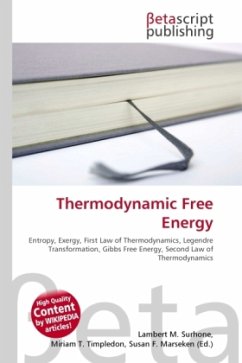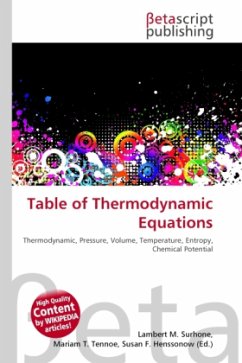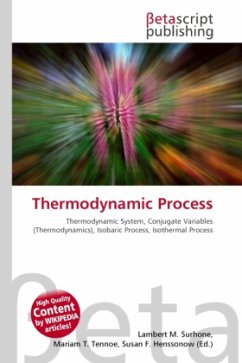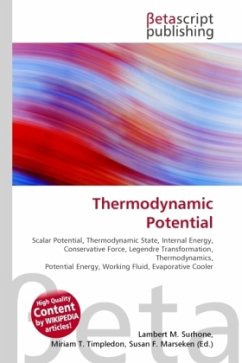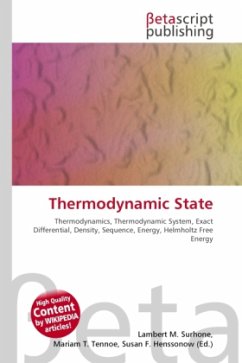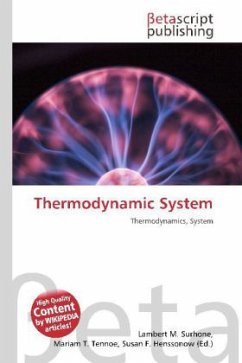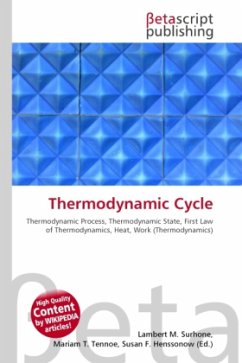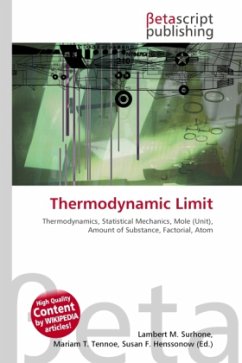High Quality Content by WIKIPEDIA articles! In thermodynamics, the term thermodynamic free energy refers to the amount of work that can be extracted from a system, and is helpful in engineering applications. It is a subtraction of the entropy of a system multiplied by a reference temperature (giving the "unusable energy") from the total energy, yielding a thermodynamic state function which represents the "useful energy". In short, free energy is that portion of any First-Law energy that is available for doing thermodynamic work; i.e., work mediated by thermal energy. Since free energy is subject to irreversible loss in the course of such work and First-Law energy is always conserved, it is evident that free energy is an expendable, Second-Law kind of energy that can make things happen within finite amounts of time. The free energy functions are Legendre transforms of the internal energy.
Bitte wählen Sie Ihr Anliegen aus.
Rechnungen
Retourenschein anfordern
Bestellstatus
Storno

